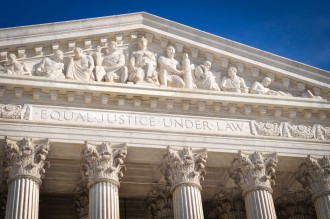
January 9, 2018
The Ever-Shrinking IPR Estoppel
The District of Massachusetts’s January 2, 2018 order in Koninklijke Philips NV et al v. Wangs Alliance Corporation d/b/a WAC Lighting Co., 1-14-cv-12298 provides another example of Courts narrowly defining §315(e) estoppel by declining to extend IPR estoppel to invalidity contentions that were served before the IPR was instituted.
More specifically, the defendant served preliminary invalidity contentions before filing its petition for Inter Partes Review. The IPR petition did not include all of the invalidity grounds set forth in the defendant’s litigation contentions. The IPR was then instituted, and the litigation stayed. Eventually, some claims survived the IPR process. The patentee then moved for summary judgment that the defendant was estopped from presenting invalidity theories that were included in its preliminary (and pre-IPR) invalidity contentions, but which were not included in the petition for IPR.
Section 315(e)(2) states that a “petitioner in an inter partes review of a claim in a patent under this chapter that results in a final written decision … may not assert [] in a civil action … that the claim is invalid on any ground that the petitioner raised or reasonably could have raised during that inter partes review.” (emphasis added).
Nevertheless, the Court denied the motion, based on the Federal Circuit’s reasoning in Shaw Industries Group, Inc. v. Automated Creel Systems, Inc., 817 F.3d 1293 (Fed. Cir. 2016), where the Federal Circuit found that grounds raised in a petition, but not instituted, were not subject to estoppel, because an IPR does not begin until it is instituted. As explained by the Court, Shaw indicates that “the phrase ‘inter partes review’ in Section 315(e)(2) refers only to the period of time after review is instituted, and, therefore, the estoppel provision does not apply to arguments that the petitioner only ‘raised or reasonably could have raised’ in its petition rather than after institution of review.”
Accordingly, because new grounds may not be raised after institution, under this decision estoppel only applies to grounds that were actually instituted in the IPR.
Notably, the Court acknowledged that other district courts (in the Western District of Wisconsin, the Eastern District of Texas, and the Eastern District of Virginia) have come to the opposite conclusion, finding that estoppel extends to grounds the petitioner failed to include in its petition. We thus await the Federal Circuit’s view on this specific issue.
The Court’s order is available here: https://docs.justia.com/cases/federal/district-courts/massachusetts/madce/1:2014cv12298/161200/226



































